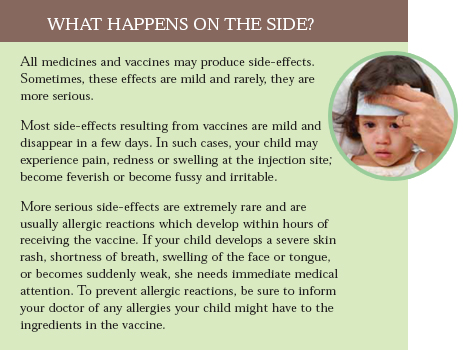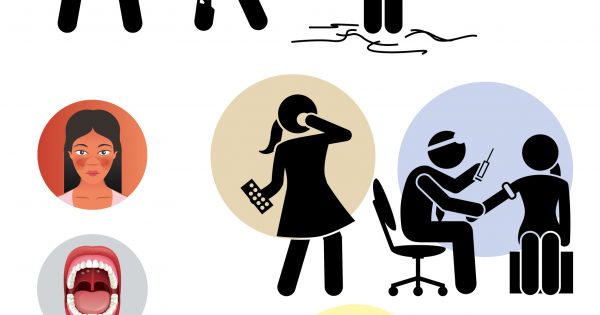As parents, we make decisions every day for our young children. From toys to safety, food and nutrition to vaccines, we make these decisions in the hope that they will help ensure their health and well-being.
It is interesting to note that, according to a worldwide survey conducted by Ipsos Belgium, a leading market research company in Belgium, vaccination is one of the easier decisions for parents to make: 42% of Malaysian mothers feel very comfortable that they are making good choices in this area. Most of them consider vaccination to be an absolute necessity (79%) and an investment for their children’s health (75%).
While the efficacy of vaccinations in preventing life-threatening diseases cannot be disputed, 36% of Malaysian mothers indicated that they were still concerned about subjecting their babies to one painful injection after another.

This is perfectly understandable and to address this is the combination vaccine: a single vaccine which offers immunisation against deadly diseases, all of which are listed on the mandatory immunisation schedule recommended by the Ministry of Health and the Malaysian Paediatric Association. Combination vaccines covering diphtheria, tetanus, pertussis (whooping cough), and/or polio have been available for years. Newer combination vaccines add Hib (Haemophilus influenzae type b) and hepatitis B to the four above making the 5-in-1 and 6-in-1 combinations vaccines respectively.
Diphtheria
Diphtheria is a serious bacterial infection which mainly affects the airways and sometimes, the skin. It can lead to paralysis, heart failure and severe breathing difficulties. The risk of serious complications or even death from this bacteria is particularly high in the very young and elderly.
Tetanus
Also known as ‘lockjaw’, the tetanus bacteria enters the body through wounded skin such as burns, fractures or contaminated wounds. Once the bacteria enters the wound, it releases a toxin which affects the nervous system and causes severe pain, headaches, rigidity and spasms. The spasms can be so strong that they sometimes cause bone fractures of the spine. 10% of tetanus cases result in death.
Pertussis
Commonly known as whooping cough, this highly infectious bacterial disease affects the breathing tract and can cause severe prolonged coughing fits and breathing difficulty. Pertussis may lead to middle ear infections, bronchitis, pneumonia, fits and brain damage. It is most dangerous in babies under 6 months – 1 in every 200 infected babies die.
Hib
A bacteria called Haemophilus influenzae type b, Hib causes ear and airway infections and is the main cause of meningitis in children under the age of 2. Hib is a deadly disease – up to 10% of infected infants die and up to 30% suffer from serious complications such as mental retardation, cerebral palsy, deafness, epilepsy or partial blindness.
Polio
Polio is a viral infection that can cause a range of effects – from mild illness to permanent disability to death. In severe cases, polio infection causes paralysis of muscles which control breathing and walking. Limbs that are affected by polio may become deformed. Before the widespread use of the vaccine, polio resulted in children and adults with disabilities. Malaysia is currently polio-free and we should not be complacent.
Hepatitis B
Hepatitis B is a viral infection which causes inflammation of the liver. It can be passed from an infected mother to her baby or via contact with a carrier of the disease through sores, cuts or wounds. Babies who are infected at birth almost always become carriers of Hepatitis B.While they may seem healthy for many years, symptoms can appear and eventually lead to serious liver diseases such as liver scarring or liver cancer. There is currently no treatment for Hepatitis B.
There are other combination vaccines like the MMR (for mumps, measles and rubella) or MMRV (with added chicken pox) that will be discussed in later issues. Combination vaccines reduce the number of injections that baby needs while giving the same protection.







Comments